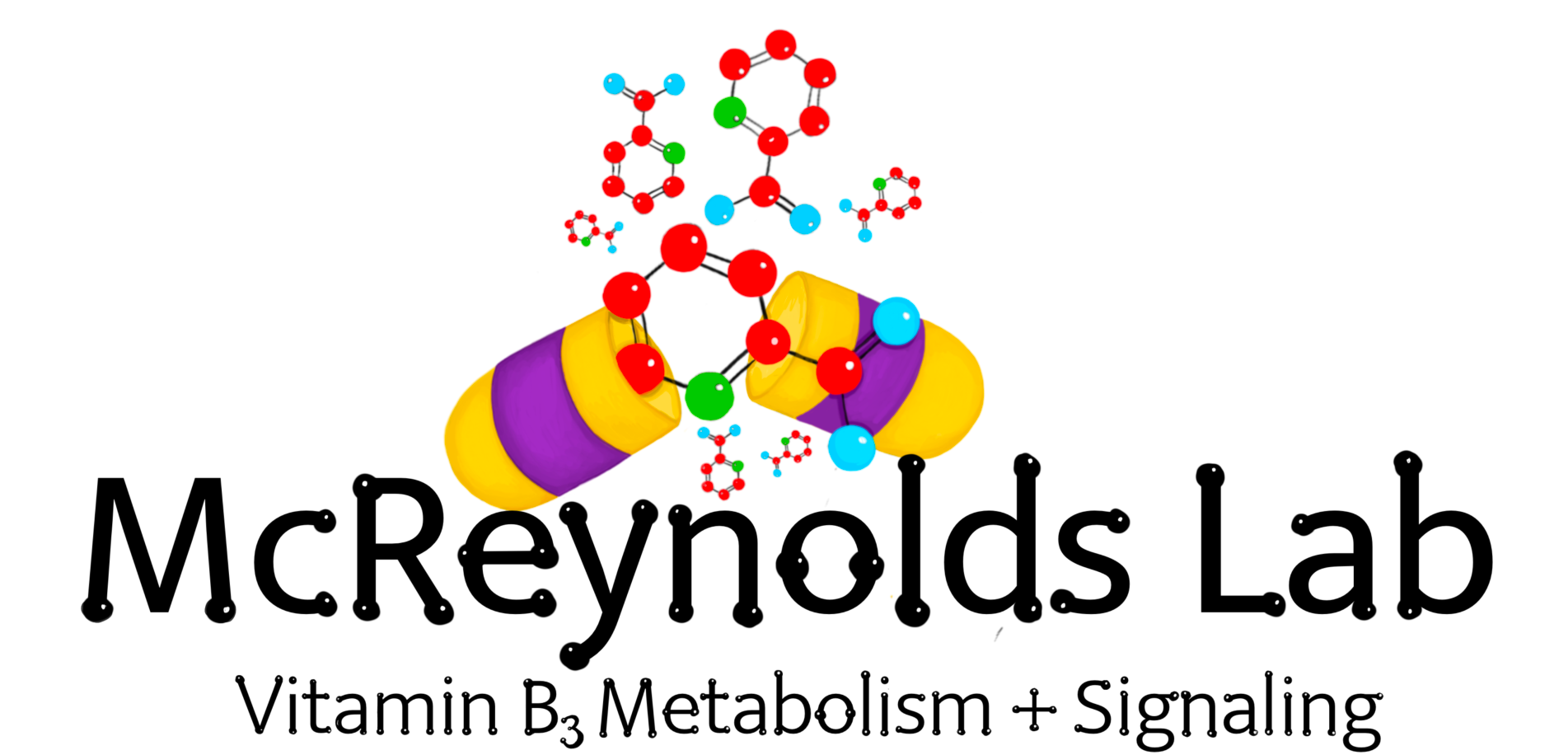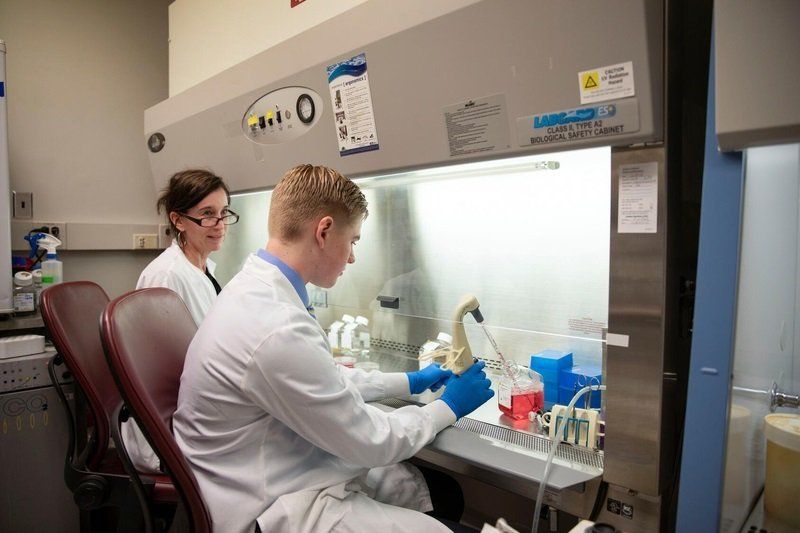Assistant Research Professor: Kelly A. Hogan
Project I: Uterine, Pregnancy and Placental Metabolism (In progress)
The placenta is a highly metabolic organ charged with meeting the nutrient and oxygen demands of the developing fetus during pregnancy. It is also an extraordinarily adaptive organ that responds both to the maternal and extrauterine environment, in part, through regulation of biosynthetic, repair, and redox reactions requiring the coenzyme nicotinamide adenine dinucleotide (NAD+). Chronic stressors have the potential to alter steady state NAD+ levels and contribute to placental insufficiency, resulting in poorer pregnancy and birth outcomes. Our research in pregnant mouse models will focus on interrogating the effect of NAD+ depleting stressors including, but not limited to, environmental/dietary exposures, and advanced maternal age, infection/inflammation, psychosocial stress, and sleep/circadian rhythm disruption, and advanced maternal age. The overarching goals of our studies are to better understand: 1) how NAD+ metabolism is regulated (and dysregulated) in uterine and gestational tissues; 2) how NAD+ dysregulation contributes to poorer pregnancy and birth outcomes; and 3) how altered NAD+ levels can be safely restored during pregnancy.
Project II: Functional Studies of VACTERL Variants in C. Elegans (In progress)
A gap exists in our understanding of the unique aging trajectories that may arise in individuals whose earliest development was shaped by genetic, epigenetic, or environmental stressors resulting in congenital malformations. We use the genetically tractable C. elegans model to assess the functional outcomes of inhibiting orthologs of mitochondrial and nuclear gene variants identified in a cohort of individuals with a constellation of co-occurring congenital malformations called VACTERL association. Functional studies in C. elegans include assessments of reproduction, mobility, healthspan, and longevity. We also explore the impact of inhibiting developmental orthologs on the NAD+ metabolome and on gene expression of NAD+ synthesis and degradation pathways. The overarching goal of these studies is to explore the extent to which altered development shortens healthspan and accelerates aging.
Project III: Natural History of Congenital Malformations (Proposed)
Presently, surgical management is the standard of care for individuals diagnosed with congenital malformations (CM) during childhood. It is unknown, however, how rare inherited and de novo variants that arise during embryo development and result in limb and organ malformations impact the healthspan and aging trajectory of individuals with CM. Using a qualitative grounded theory approach, we seek to understand the natural history of a constellation of non-random, co-occurring CM called VACTERL association. By documenting the lived experience of wellness, decline, disability, disease appearance, and disease progression in affected individuals, we aim to gain insight into the effects of CM on healthspan and aging. The overarching goal of this study is to identify and address healthcare inequities experienced across the life course of adults living with congenital malformations.
Education:
- Ph.D., Integrative Biosciences/Molecular Toxicology: Huck Institutes of the Life Sciences, Pennsylvania State University
- Fellowship Training, Environmental Reproductive Toxicology T32 Postdoctoral Research Fellowship, School of Public Health, University of Michigan, Ann Arbor, MI
- Postdoctoral Translational Scholars Program (PTSP) Scholar, Michigan Institute for Clinical & Health Research (MICHR), University of Michigan, Ann Arbor, MI
- Postdoctoral Fellow, Progenitor and Adult Stem Cell Biology Laboratory, Department of Biochemistry and Molecular Biology, Mayo Clinic, Rochester, MN
- Postdoctoral Fellow/Research Associate, Metabolism and Molecular Nutrition Laboratory, Kogod Center on Aging, Mayo Clinic, Rochester, MN

